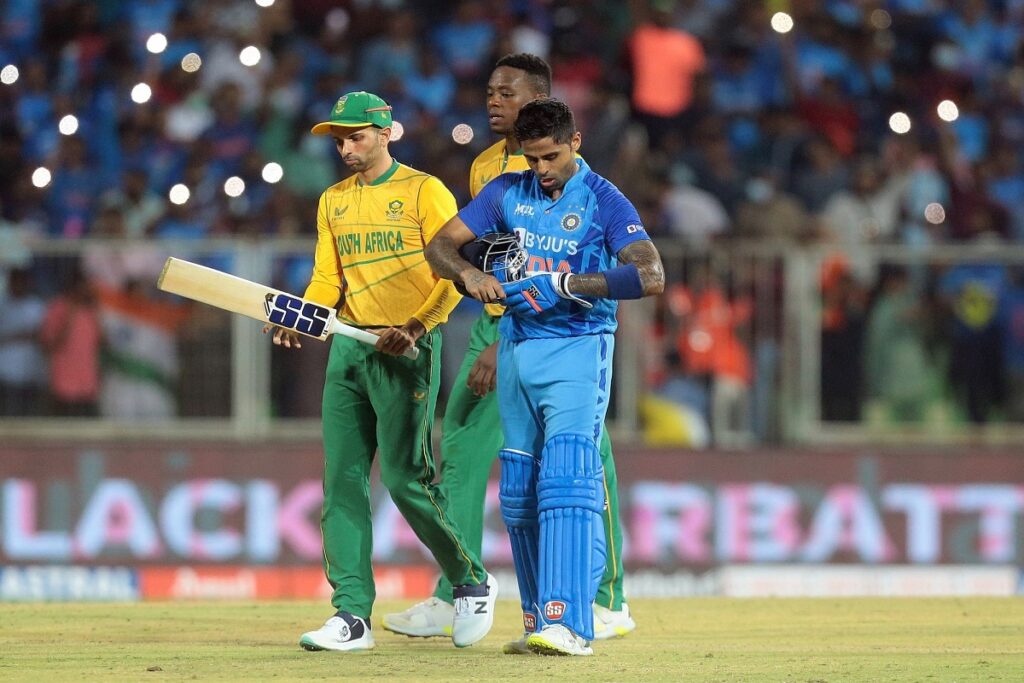Explosive Indian middle-order batsman Suryakumar Yadav has been in brilliant touch ever since making his debut for the national side back in 2021. The right-hander has scored in excess of 1,000 runs in his brief T20 career, at an exhilarating strike rate of 175.
On the back of his fantastic performances, the player has now cemented his place in the Indian white ball squad, becoming one of the first names on the team sheet.
Yadav had been knocking on the doors of the Indian selectors for a while, with consistent performances for the Mumbai Indians in the Indian Premier League, and also in the domestic circuit.
Nonetheless, he has added to his incredible achievements, as he bagged the record for the most runs in a calendar year by an Indian, as he closed in on 700 runs in T20Is in 2022. The 32-year-old reached the milestone during an instrumental unbeaten half-century as India romped home to a comfortable eight wicket victory against the Proteas.
During his 33-ball 50, Yadav surpassed stalwart batsman Shikhar Dhawan. The southpaw had scored 689 runs at 40.52, with an impressive strike rate of 147.22 in 2018, where he played 18 T20 Internationals for India.
Suryakumar was just eight runs shy of the milestone walking into the first T20I against the South Africans in Thiruvananthapuram. The South African batting collapsed like a house of cards, as returning duo Deepak Chahar and Arshdeep Singh ran through half the side, as South Africa were reduced to 9/5.
Chasing a total barely into the three-figure mark, India were in a spot of bother in the powerplay as both skipper Rohit Sharma and Virat Kohli fell early on. If was Yadav and KL Rahul who took matters into their own hands, with Rahul holding fort while Yadav took on the Proteas bowlers. In the end, the hosts were able to pull off a comprehensive victory by eight wickets, as the Karnataka man finished off the game with a maximum over square leg.
With the T20 World Cup just two weeks away, India will be counting on Yadav to deliver the goods as they chase an ICC trophy after nearly nine years.


